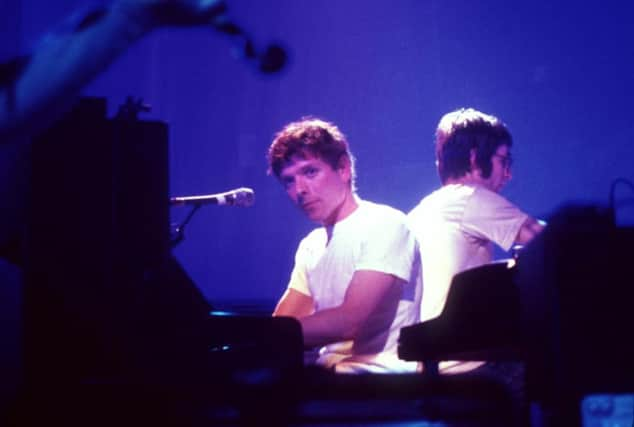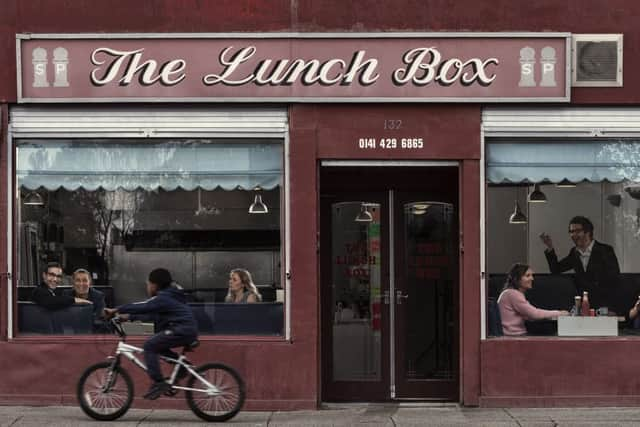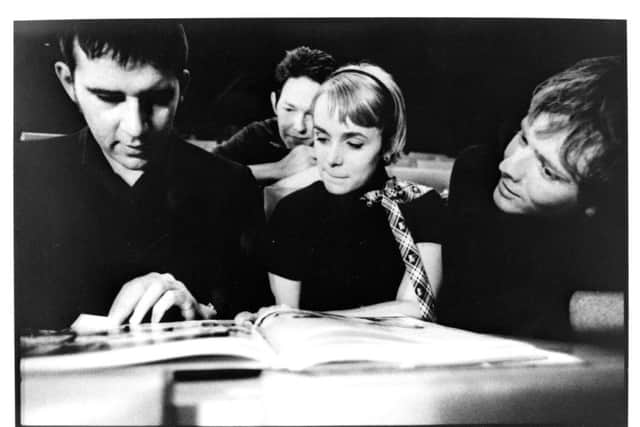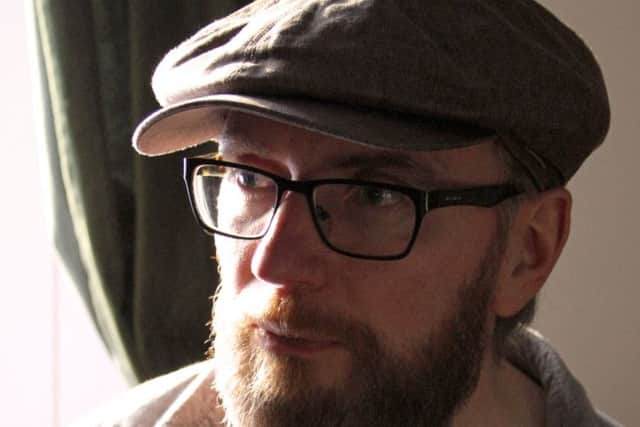Belle and Sebastian's Tigermilk, the album that almost never happened


This month, Belle and Sebastian celebrate the 20th anniversary of their debut album Tigermilk with a trio of intimate shows in their native Glasgow followed by another trio of concerts at the Royal Albert Hall. This could well mark the most comprehensive airing yet of material from the band’s earliest days. Most of this gorgeous batch of songs didn’t even get a look-in at the original Tigermilk launch party, with the group opting to play newer material which was to feature on the speedy follow-up If You’re Feeling Sinister.
At the time, frontman Stuart Murdoch was on a songwriting roll and record companies were clamouring to board the Belle and Sebastian train. The trajectory of a modest, nascent band from Glasgow had taken on an almost hysterical momentum. Yet six months earlier, Murdoch was struggling to make it off the buffers, and if it hadn’t been for an offer from a local college to release a record, the Tigermilk set may never have seen the light of day and the Belle and Sebastian legend may have played out quite differently.
Advertisement
Hide AdAdvertisement
Hide AdStuart David, the band’s original bass player, remembers this lean period well, and describes it in endearing, unaffected detail in his Belle and Sebastian memoir, In The All-Night Café. He was Murdoch’s first, almost unwitting recruit to his dream band and did the rounds of open mic nights and demo recordings with this single-minded outsider.


“For a while it was just me and Stuart and we had this ramshackle thing, and nobody was interested at all, not even in playing with the band,” says David. “But I was aware that his music was melodically better than most of the stuff that was around. At the time, there was a movement against melody, it was about the deconstruction of melody. I think Stuart was aware of that – he said later that had inspired him in a contradictory way to go out of his way and be as melodic as he could be.”
The students on the music business course at Stow College were among the first to prick up their ears – including a drummer called Richard Colburn who also joined the band seemingly by osmosis – and Murdoch and David were approached to record an EP as part of the students’ annual music release assignment on their college label Electric Honey (later projects included Snow Patrol and Biffy Clyro, making them a pretty hotshot A&R department).
Murdoch had become so disillusioned that he was considering a move to San Francisco but was persuaded to stay when the offer to record a CD EP was upped to 1,000 copies of a vinyl LP, and the romantic plan started coming together. Further band members were duly recruited and compelled to gel in a hurry at a hectic debut house party gig and then over five days in Cava Studios.
By the time of the album launch party on 6 June, London indie label Jeepster had won the race to sign the newly christened Belle and Sebastian – named after a French kids’ TV show and a short story Murdoch had written which strangely presaged developments in the B&S camp – with David invoking a special clause, normally reserved for the likes of Prince and Beck, which meant he was free to make his own music as Looper.


“It became a really confusing experience for me,” recalls David, “because I’d got caught up in this thing where I thought I was just helping out Stuart putting a band together but suddenly we were a signed band making an album and all my time was being taken up by Belle and Sebastian. It fascinated me what was happening.”
What was happening was Belle and Sebastian fever, with record companies so desperate to poach this fledgling band and their enigmatic frontman that keyboard player Chris Geddes was accosted by label suitors at the urinals during the launch party. Meanwhile, friends and family were helping themselves to the complimentary copies of Tigermilk which lined the walls and using them as Frisbees outside. No one was to know that, within months, demand for this limited edition cult classic would be so high that copies were changing hands for over £800.
Advertisement
Hide AdAdvertisement
Hide AdBy that point, the band had moved on apace to their second album, If You’re Feeling Sinister, and the songs from Tigermilk were all but discarded in the surge forwards. David could barely keep up.
“Stuart’s idea was that you don’t need to do anything that anybody else does, we can do things our own way, and I became Stuart’s ally in that. But as time went on it became a conflict within the band because there were too many people who didn’t want to do that art terrorist thing.


“As the audience got bigger, it was something that we had to not lose, and once it became less about causing trouble and not doing things the way everybody else was doing it, I didn’t really feel I had any role.”
David left Belle and Sebastian in 2000 – though he says he thought the entire band were splitting up – and concentrated on his own music and writing. “In hindsight, it was probably a mistake, I probably could have had a bigger musical role than I realised.”
David has struggled with fatigue over the past decade, affecting his ability to get out and play. He has taken to writing chiptune music using old games consoles and is a convert to self-publishing, which he feels “has a vibrancy about it that indie music had 20 years ago, and an audience that doesn’t exist in music at the moment.”
He still sees his former bandmates at the Belle and Sebastian Christmas dinners and corresponds with cellist Isobel Campbell, who left a couple of years after he did. He was invited to be part of the Tigermilk anniversary shows and will contribute a recorded extract from his memoir.


“Twenty years later it’s like they’re finally doing the launch party,” he laughs. “Back then, it was so fast and the songs were so new. So when I listen to Tigermilk, it’s more about what a great recording it is. It’s really coherent and it sounds the best.”
• In The All-Night Café is available now in paperback; Belle and Sebastian play GUU, Glasgow, 13-15 June